Wimbledon women’s final: Serena Williams says she needs to find a way to break through in finals
Dominating Grand Slam finals was once Serena Williams’ domain. But, as father time catches up on the legendary American, Margaret Court’s Grand Slam record may not be the fait accompli it once seemed.
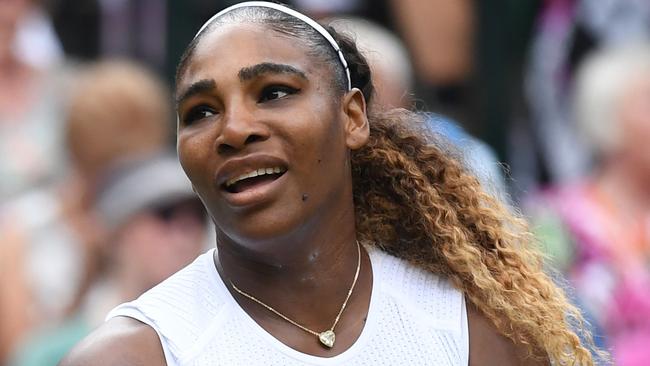
News
Don't miss out on the headlines from News. Followed categories will be added to My News.
Whether the malady is curable or not, only time will tell — but the prognosis is not good.
At almost 38, Williams has done a phenomenal job simply to return to the circuit after dire complications following the birth of her daughter, Olympia.
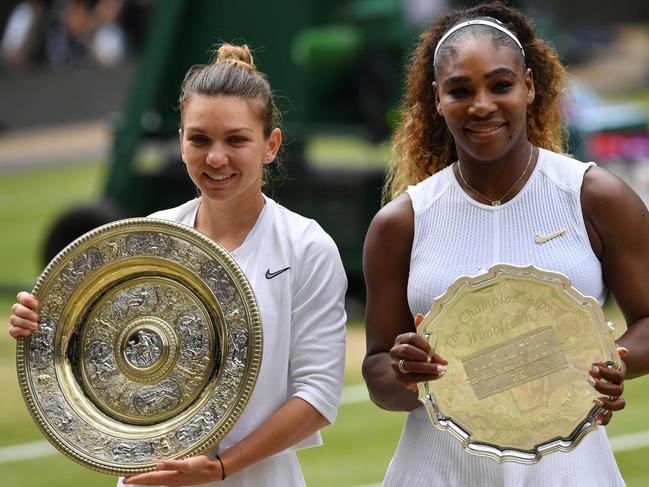
Wimbledon 2019: Simona Halep thrashes Serena Williams 6-2 6-2 to claim first title
Her effort to reach three major finals in the six grand slam tournaments since resuming is staggering.
But something, most likely a clear mind, is missing.
In those three finals, she has been hammered.
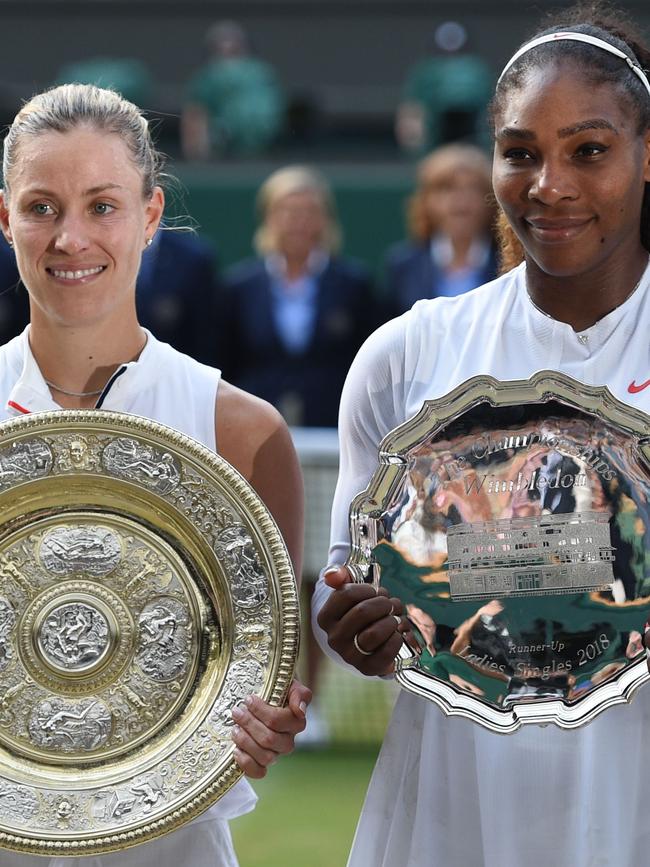
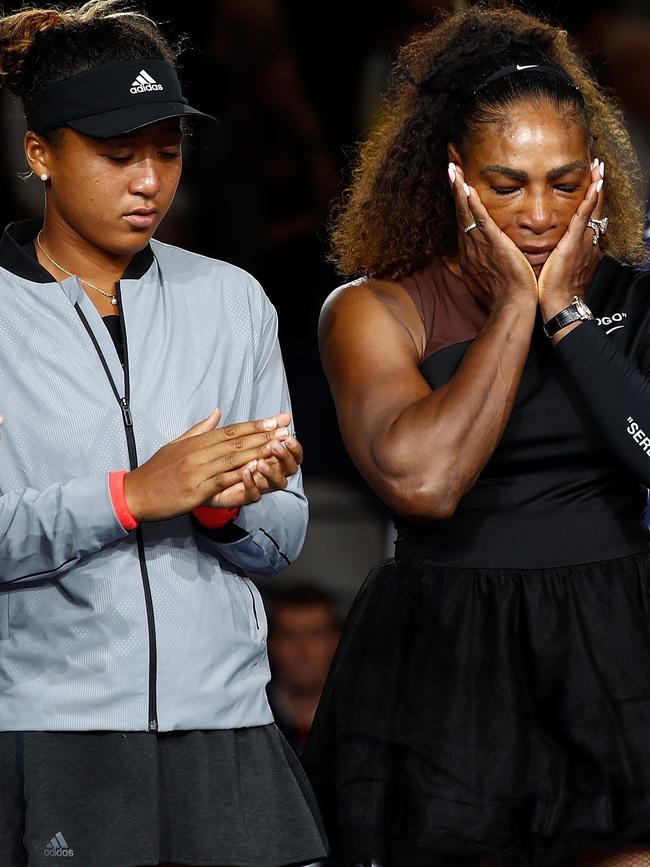
Angelique Kerber drilled her 6-3 6-3 at Wimbledon last year, Naomi Osaka punished her 6-4 6-2 at the US Open and Simona Halep destroyed her 6-2 6-2 at Wimbledon this season.
One of the most troubling aspects of Williams’ failings is compromised mobility because of knee pain but, even more concerning, is tactical inflexibility.
Williams has not devised a Plan B, after all these years.
In the absence of genuine court-craft, there’s brute force.
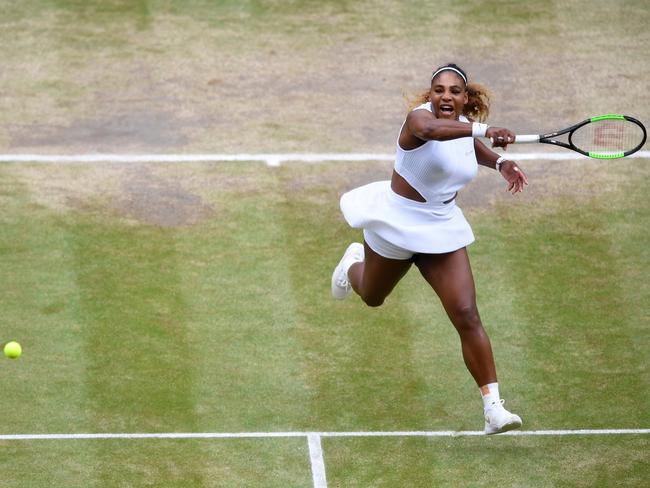
In the past, Williams could rely on the best serve in the history of women’s tennis to both destroy opponents and save her own skin.
Not anymore.
Younger, fitter opponent now absorb Williams’ pace and use it as a counterpunching weapon.
And when it’s done as expertly as Halep did, Williams has no solution.
“I do have a strategy for players that do get a lot of balls back, which I thought about far too late,” she said after the Halep pummelling.
“I think I was over-hitting it, trying to go for too much. She was getting just a tremendous amount of balls back.”
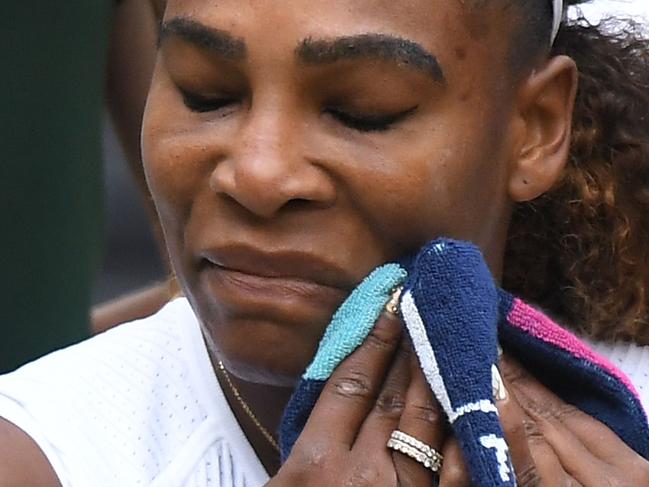
Williams famously used to bully and bluff her way past opponents.
She’s forgotten the trick now.
“I just have to figure out a way to win a final,” she said.
“Maybe it is playing other finals outside of grand slams would be really helpful just to kind of get in the groove so by the time I get to a grand slam final I’m kind of used to what to do and how to play.”
With only Toronto and Cincinnati on her schedule between now and next month’s US Open, Williams is cutting it fine.
For the first time since returning from childbirth, Williams admits tennis is “definitely different.”
“For the most part, I feel like I’m on the right track. I’m just going in the right direction in terms of getting back to where I need to be,” she said.
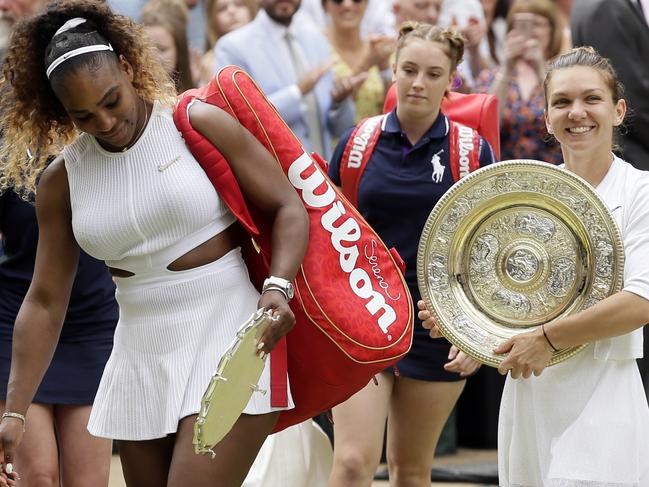
The next three months will gauge Williams’ progress but unless she changes, more setbacks are certain to follow.
Off-court, it will be business as usual.
Earlier in the tournament, tennis legend Billie Jean King told the BBC that Williams should give up being a celebrity for a year: “Just stop all this insanity.”
King had said that running a business, looking after a child and battling for equality for women and ethnic minorities, could largely all be dealt with by her staff while she focussed on tennis for a couple of years.
The barb rankled Williams.
“The day I stop fighting for equality and for people that look like you and me will be the day I’m in my grave,” she said after her loss.
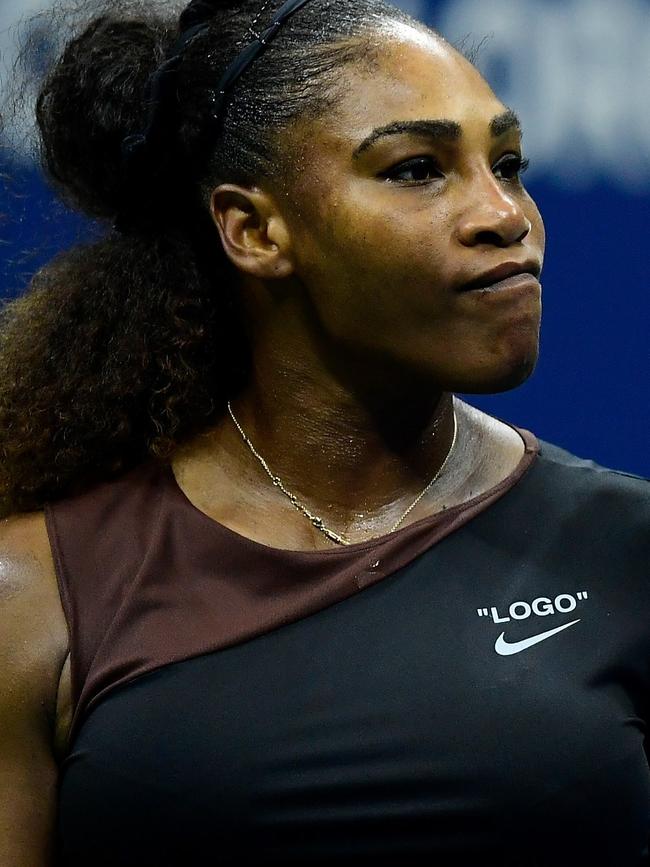

Williams refused to accept that the possibility that Margaret Court’s 24-Grand Slam record may elude her.
“I don’t know,” she said.
“I mean, I don’t really think about it. I just go out there and play, see what happens.
“That’s kind of how I’ve been in my whole career. You know, I never thought about time in general.
“I feel like I’m just really on this journey of just doing the best that I can, playing the best that I can when I can.”


